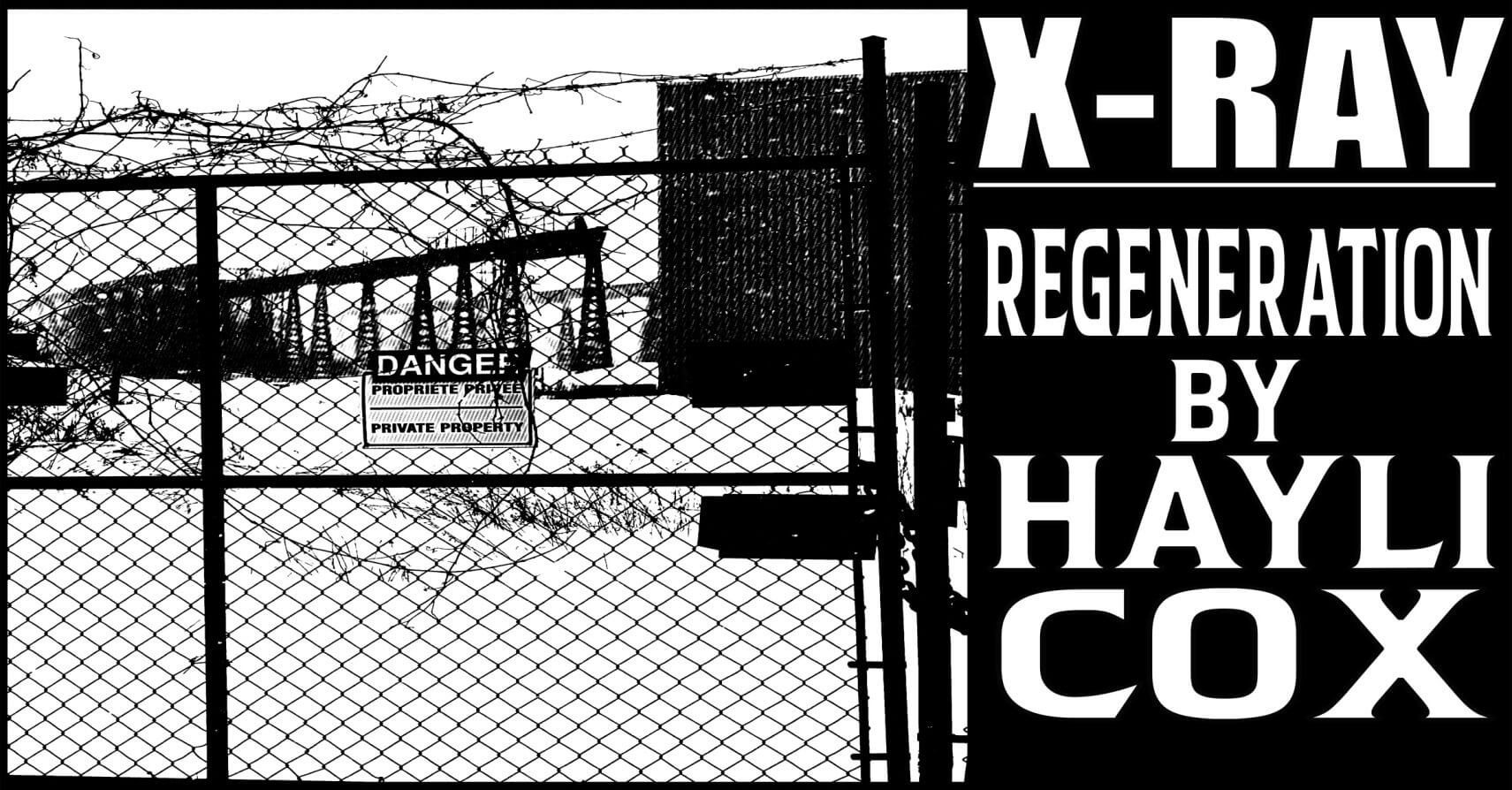I return home and more has fallen away—blue lead paint chips spread across grass, a pane drops its window, birds hatch in the walls and form a chorus. Decay does its work, peeling away metal roofs and taking hair, knees, eyes. Wood siding gives easy, leaving little holes.
We help Dad disassemble someone’s old deck, dodging rusted nails with the circular saw, reclaiming the best pieces to build a ramp. He designs and redesigns with his carpenter’s pencil, measures angles with his father’s old square. There’s not enough wood or space for a gradual slope, but as long as we can push her chair, they’ll let us bring Momma home. We pick up bits of siding and tap nails around the door, hoping for something left solid, something to bite.
Momma’s bones are broken in so many places that the images look like fins in their oceanic blue-black glow. She’s lost so much lately—her mother, her little brother, a job she loved, her optic nerve, her now-totaled car. She has metal in new places, external hardware, her mother’s old walker, scars to make stories out of. Her surgeon puts her back together, cowboy boots poking out under his scrubs. She hears him swear as he looks at her bones, what the fuck am I supposed to do with this?
Nobody called us until after she was out of the first surgery, after her pooled blood had already dried on the asphalt at the intersection, after she was stabilized. I have never seen my father so angry as when he thought he could have lost her without having known. When they called to tell him his wife was out of surgery, he thought it was a prank. And I have never seen my mother in such agony. Her bones pieced back together, nerves cut, body re-arranged, she cried out for her mother, already years gone. Momma, momma, we both sobbed. She wonders again and again what happened, describes glass flying in a car full of vases and jars, a forever of spinning, the other driver’s unharmed body a shadow standing in blue jeans, a woman holding her hand. She says I keep thinking I just keep thinking and I keep listening: in the hospital chair, on the floor of her makeshift room, then through the phone a few hundred miles away. We’ve always been able to talk for hours.
When all that’s left are the railings, we drive to get her. She is restless, moving her body through cries to prove her strength, her readiness for home. Her cyborg parts don’t fit between the dash and the floorboard in our old car, so she lays across the back seat, distracting herself from the fact of the road. She is overjoyed at the sight of this ramp, all fresh-cut wood and tight joints—this new construction all for her. We navigate the hundred-year-old house carefully, making our way to the space that will serve as her bedroom for the next year. Dad’s done the decorating, bought cactus flowers, installed blue curtains to serve as a door. The ramp stays railless for months.
We pull out our phones to document the part where the dogs come in. They’ve been sulking for weeks and it’s just like those viral videos, all whimpers and happy tears, but we keep it only for us. The one with heterochromia is always there, knows somehow that she delivered him, pressed his little body and brought him back to life. His bright eye is always on her through ache and infection, days of only sleep. I call and get her voicemail, so I mail her vitamins and treats, and I try again the next day. As she dreams, her bones become fibrous—calcium webs reaching for each other, fusing into something new.

